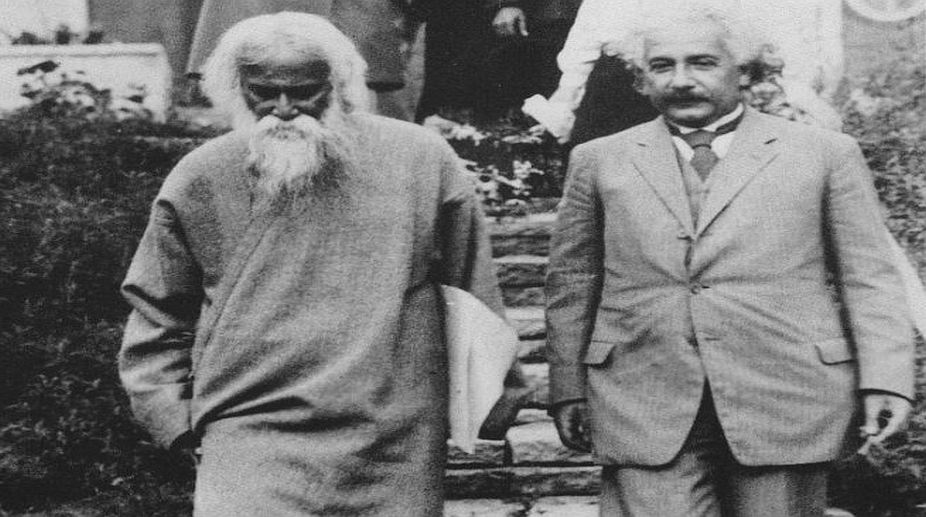Rabindranath Tagore defied death by transcending time and making his way eternally into the hearts of all Bengalis. Knowing the infinity of this legend, makes his beginning even more interesting to relate. Tagore was born the youngest in 1861, the ninth of 13 children, to Debendranath Tagore and Sarada Devi. As a manager of the considerable number of family estates and founder of the Hindu religious organisation ‘Brahmo Samaj’, Debendranath used to remain too occupied to pay attention to his children. Rabindranath’s mother died when he was very young. This left little Rabi to grow up all by himself amidst an austere silence of ‘Jorasanko’, the ‘Thakurbari’ mansion.
He developed under the supervision of his elder brothers and was catered to by the servants of the house. During the evenings, in the faded light of kerosene lamp, he would listen to fairy tales as narrated by an old maid servant.
Advertisement
Though mostly confined within the huge mansion, young Tagore was exposed to many intellectual conversations, in his home, where prominent personalities from the community would take part.
He grew up in an atmosphere of art and culture. But the ways of life and appearance in ‘Jorasanko Thakurbari’ left them a bit aloof from the society. When the upper class Bengali elites trifled the language relating it as the household medium for women gossip and boasted in the vanity of English knowledge, the Tagores proudly communicated in Bengali and promoted its glory.
Rabindranath was a school drop-out and never sat for examinations. The confines of four walls of the school appeared claustrophobic to him. He was rather drawn to the vastness and freedom outside the windows. As a result of the respect that the family held towards Indian mythology, Tagore from a very little age had fluently read Upanishad slokas every day without a slightest flaw in the Sanskrit pronunciation. When he was 11, he accompanied his father on a tour across India. While on this journey, he used to read rigorously. The works of Kalidasa, a renowned classical Sanskrit poet, was a part of them.
Of all his elder brothers, Jyotirindranath Tagore appealed to him the most. As an elder brother, he would never impose restrictions or bear an air of superiority. They would always debate on varied topics and he would respect the opinions of his little brother as if they were of same age. Being allowed this space helped Rabindranath broaden his mind and outlook.
Tagore started writing poems from the tender age of eight. Cutting himself to a corner of his room, with all the independence and enthusiasm, he would play with words, fitting or breaking them into rhymes. His head would burst with thoughts and imaginations which he would pen down, till it formed a garland of words. At 20, he wrote one of his most acclaimed poems, Nirjharer Swapnabhanga (1882).
Of the few Bengali writers who rose to prominence in his time, Rabi was the youngest and most inexperienced. He would often fall victim to their criticism and laughter, though they were in a sympathetic way rather than mockery. This in fact helped him flourish and render his writings with an identity of its own.
Student, Statesman Print Journalism School











